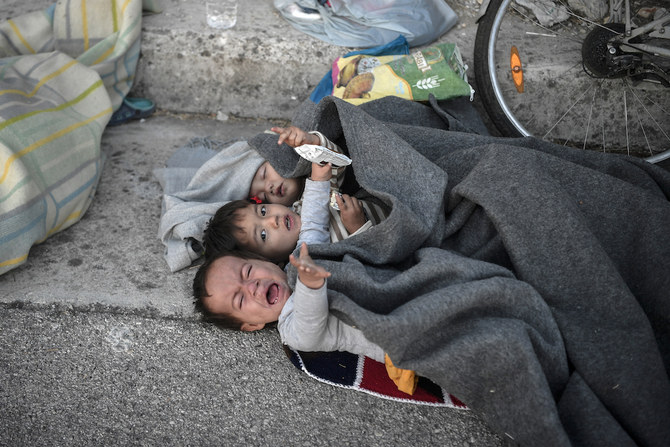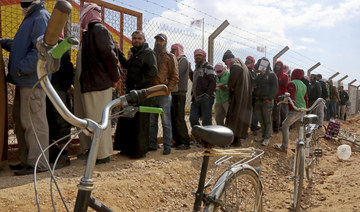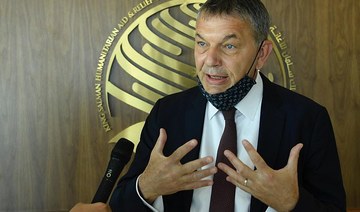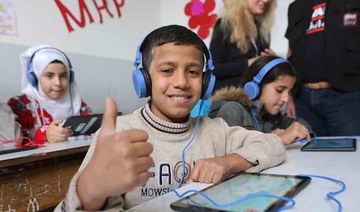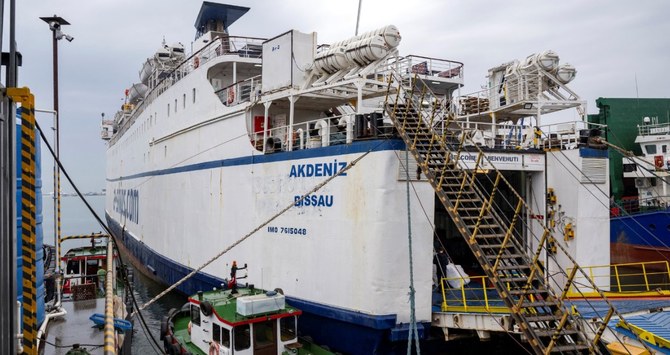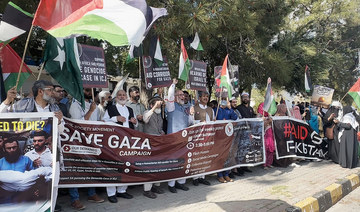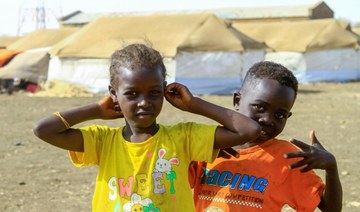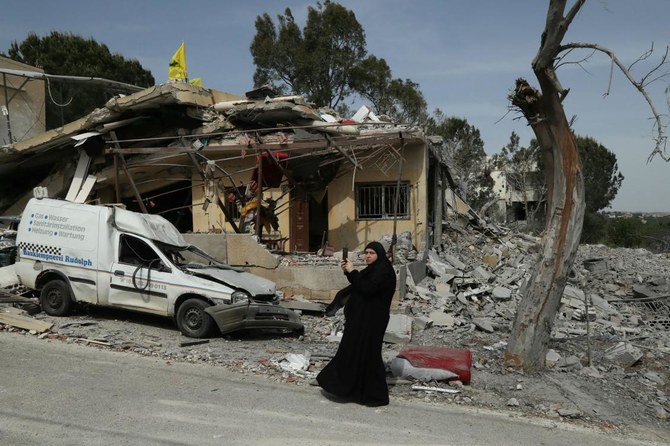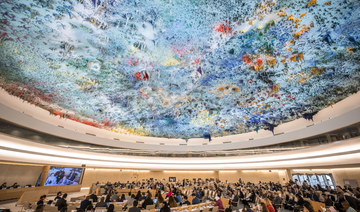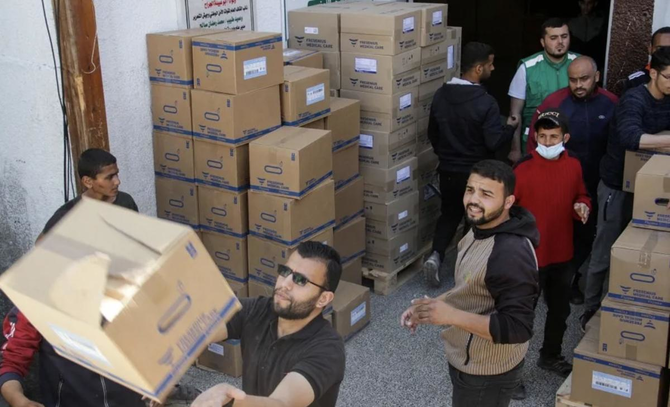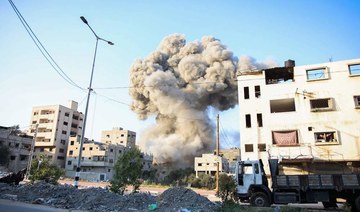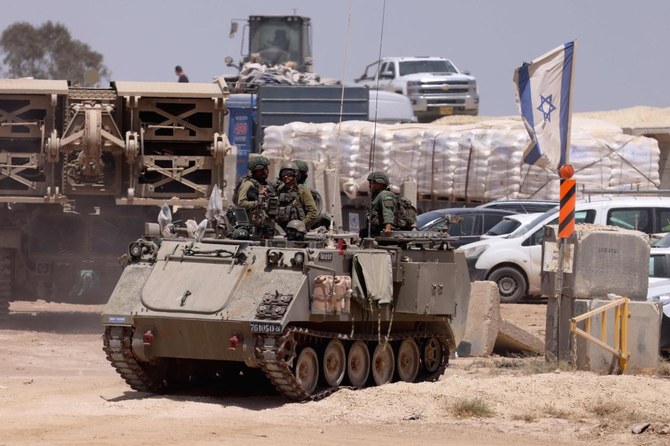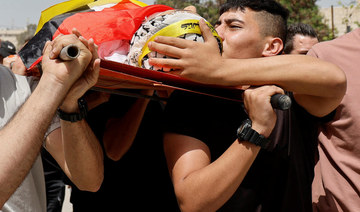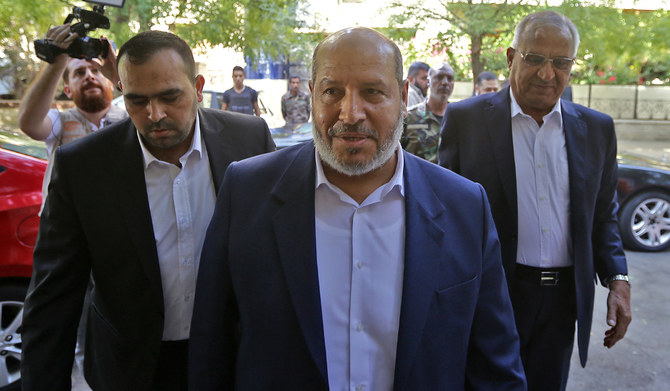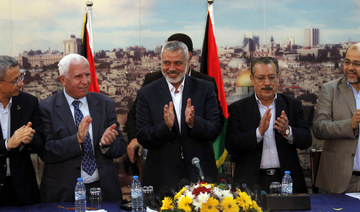DUBAI/ERBIL: Millions have been displaced by recent wars in the Middle East and North Africa (MENA) — a significant number of them children. Cut adrift in an unfamiliar world in search of safe harbor, the trauma of losing their homes is often compounded by the brutalizing experience of displacement.
According to the UN’s World Migration Report 2020, there are an estimated 31 million child migrants worldwide. Roughly 13 million of them are refugees, 936,000 are asylum seekers, and 17 million have been forcibly displaced inside their own country.
Individual tragedies have occasionally drawn the attention of the international community. When photographs emerged of Alan Kurdi, the drowned Syrian toddler lying face down in the Mediterranean surf, the issue of child migration appeared, for a time, to take center stage.
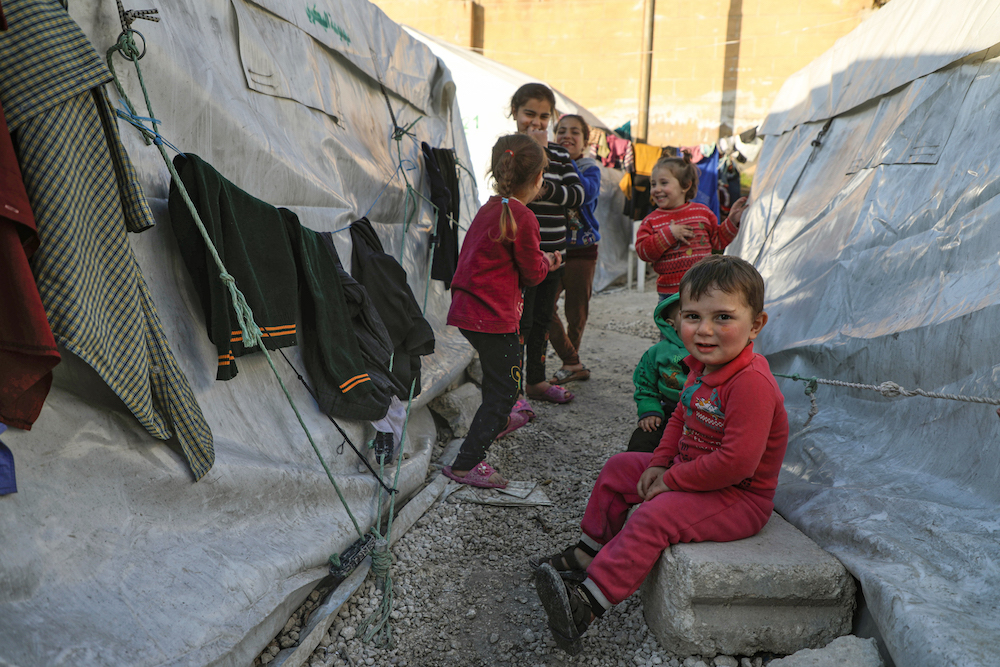
Syrian children displaced by the war gather at a makeshift camp at Idlib football stadium on March 3, 2020 in the city of Idlib in northwestern Syria. (AFP/File Photo)
The world soon moved on, though, and initial pangs of sympathy and charity reverted to earlier anxieties about security. Now the coronavirus disease (COVID-19) pandemic has left jealously guarded borders bolted tight.
Of course, it is not just war and terror that drives civilians from their homes. Political and cultural persecution, the loss of economic opportunities, and the ravages of climate change have also contributed to this vast nation of stateless people.
But it is the recent spate of conflicts in the Middle East that has specifically fed the phenomenon of child migration. As Ramzy Baroud, author and editor of the Palestine Chronicle, says, the cause of child migration in the Arab region is the direct result of “violent” conflict.
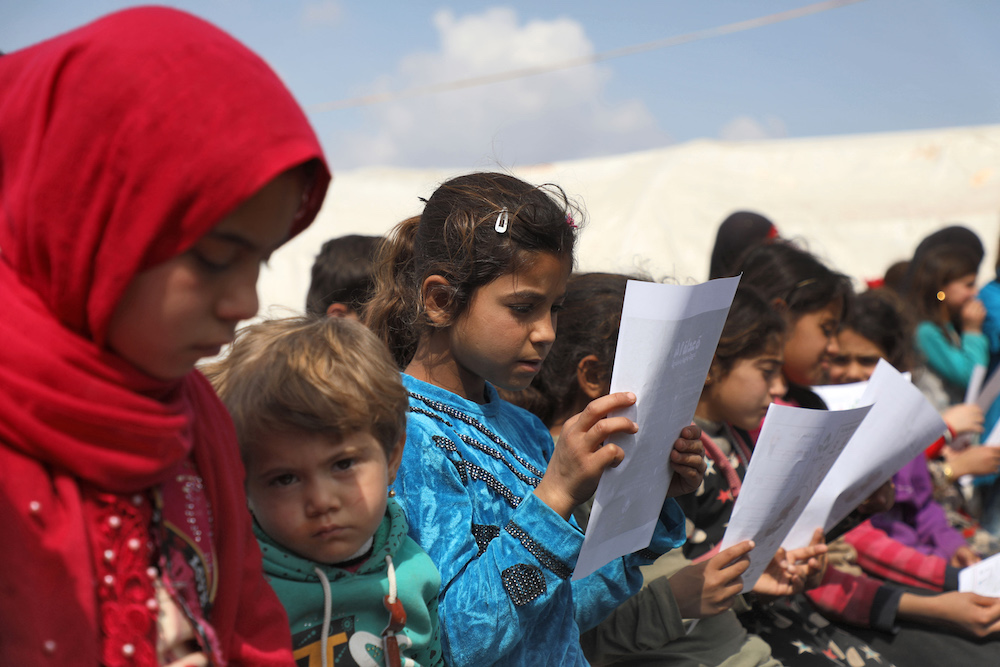
Displaced Syrian children attend a workshop aimed at spreading awareness about COVID-19 coronavirus disease and precautions for its prevention, at a camp near the Syrian town of Atme close to the border with Turkey in Idlib on March 16, 2020. (AFP/File Photo)
“Unlike economic hardship, which often evolves over prolonged periods of time, war is decisive and often leaves people with no other option but to flee,” he told Arab News. “We have seen this trend taking place in the early months of upheaval in the Arab world, starting in 2011 in Libya and continuing in Syria as well.”
Turkey hosts the largest number of refugees in the MENA region, while Lebanon hosts the largest number of refugees per capita, according to the UN High Commission for Refugees’ (UNHCR) regional spokesperson, Rula Amin.
“The situation in Syria continues to drive the largest refugee crisis in the world. There remain over 5.5 million registered refugees from Syria in the main hosting countries — Turkey, Lebanon, Jordan, Iraq and Egypt, and 2.6 million are children,” she told Arab News.
INNUMBERS
Children in the Pandemic
* 31 million - Total child migrants worldwide.
* 48% - Total refugee children out of school.
Syrians are by far the largest forcibly displaced population in the world — 13.2 million of them by late 2019, including 6.6 million refugees and more than six million internally displaced persons, according to the UNHCR.
Bombs and bullets no doubt drive the initial wave of displacement. But Baroud said the waves that follow are the result of the economic deterioration caused by conflict.
“This is important, because quite often war refugees and economic migrants are delinked, while in reality they are escaping the same threat, either that of war or its disastrous outcomes,” he said.
This can be seen in the case of Libyan and Syrian children, who fled the immediate danger with their families to become internally displaced persons — known in the humanitarian glossary as IDPs. It was predominantly the young and physically fit who dared to venture over land and sea to Europe.
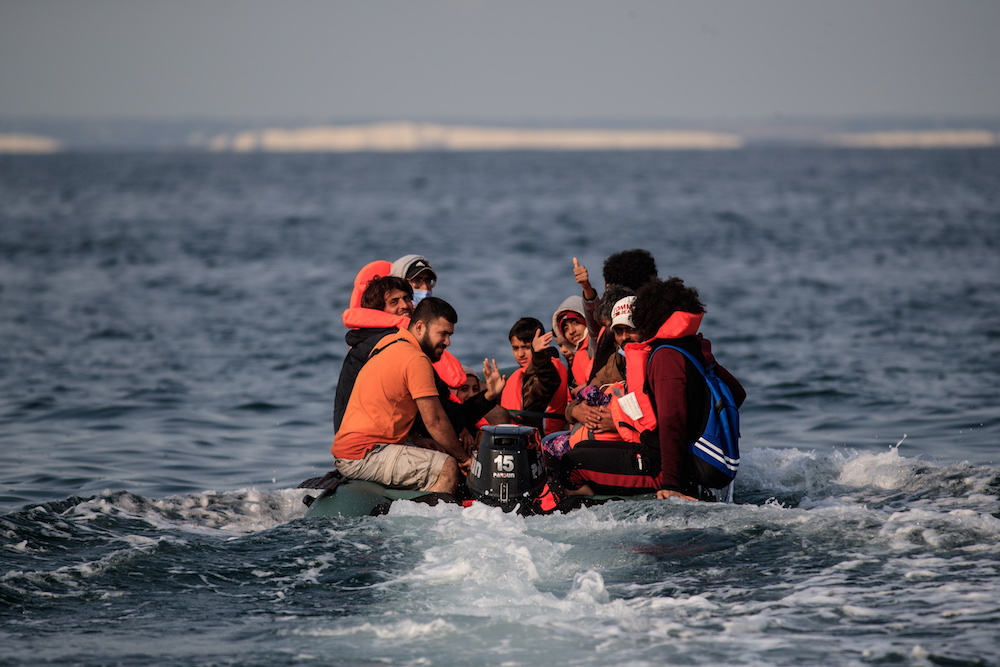
Migrants, including women and children, in a dinghy, react as they approach the southern British coastline as they illegally cross the English Channel from France on September 11, 2020. (AFP/File Photo)
However, as these conflicts dragged on, families with children increasingly lost hope in ever returning home and began contemplating far riskier options. As of January this year, Mediterranean crossings in rickety boats have killed at least 19,164 migrants since 2014, according to the International Organization for Migration.
“With time, whole families were escaping on long and arduous journeys together. In many cases, children were not even accompanied by adults, for their parents might have either been killed or separated from their children during the war,” Baroud said.
This trend was made clear in 2019, when UNICEF reported more than 33,000 child refugees crossed into Greece, Malta, Cyprus, Italy, Spain and Bulgaria, most of them from the Middle East and North Africa.
“These first countries of asylum often serve as a gateway to other destinations in Europe, where refugees hope to reach a different country, which might be Germany, Sweden, or any other,” said Baroud.
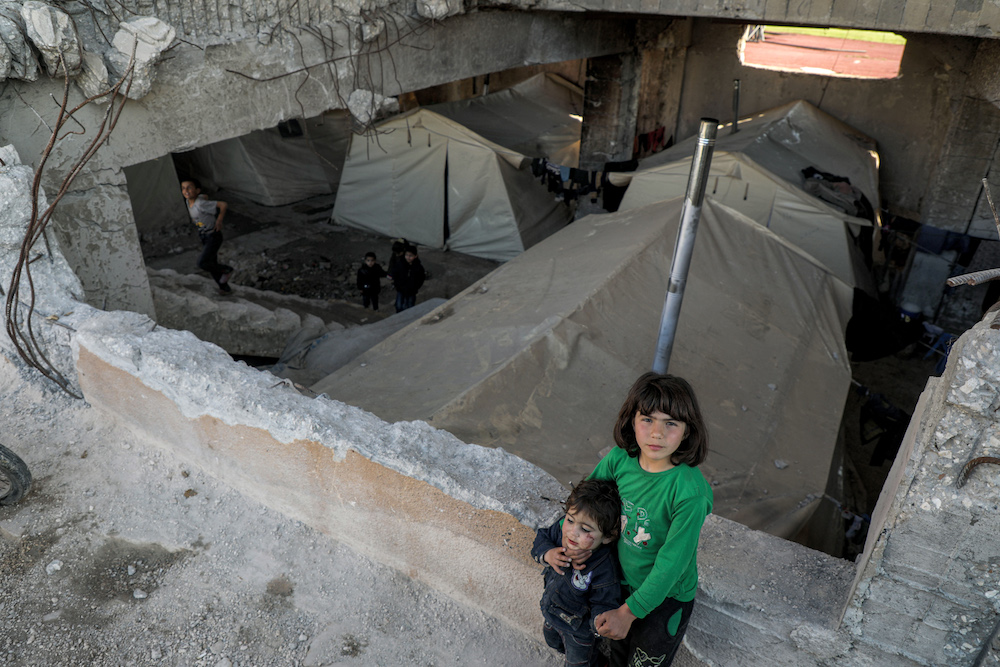
Syrian children displaced by the war stand at a makeshift camp at Idlib football stadium on March 3, 2020 in the city of Idlib in northwestern Syria. (AFP/File Photo)
“So quite often, once a refugee arrives in Greece, for example, where he or she is granted some kind of refugee identification, they hope to continue with their journeys past Greece to somewhere else where they can permanently settle.”
Keeping families together is a “concern and a priority” for aid agencies, says Amin. Key to this is obtaining civil documentation, such as birth, marriage and death certificates. With these, refugees and IDPs are able to access services, move freely and have their rights respected.
The COVID-19 has complicated matters. According to the UNHCR, lockdown measures have pushed displaced populations even deeper into poverty and uncertainty, with children bearing the brunt.
“Refugees have lost their incomes and livelihoods, they are suffering from serious historic disruption to the education of their children, deteriorating economies in their host countries add to their challenges and expose them to increased risks of child labor, early marriage and school drop-out,” Amin said.
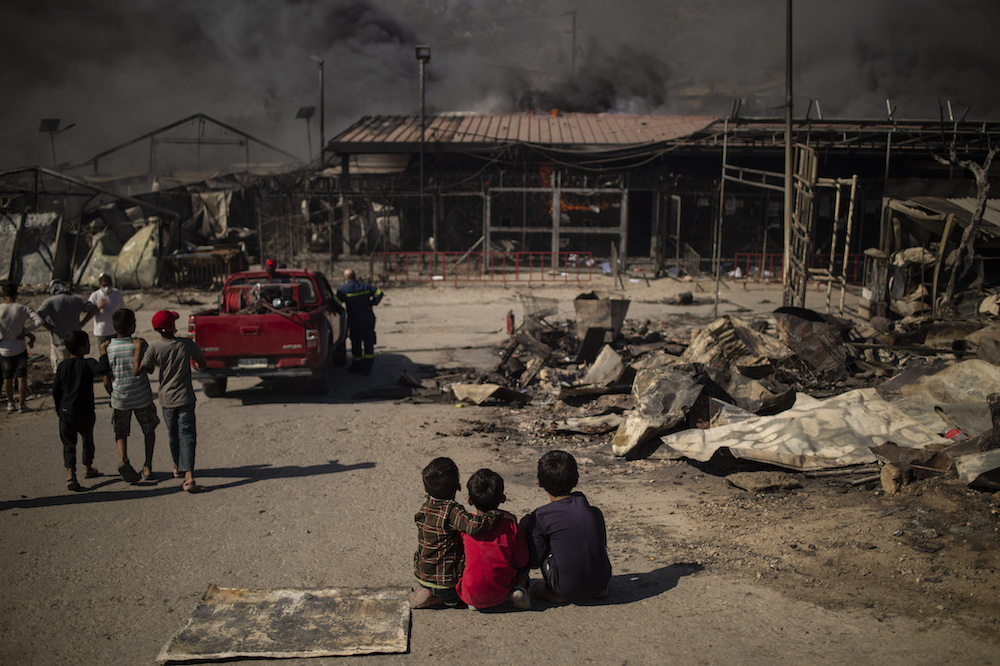
Children sit on the ground in the burnt camp of Moria on the island of Lesbos after a major fire broke out, on September 9, 2020. (AFP/File Photo)
In fact, 50 percent of refugee girls worldwide are at risk of dropping out of school entirely because of COVID-19. With classes moving online, many displaced children simply don’t have access to computers, consistent internet, or a stable learning environment.
“The pandemic is threatening to erase years of progress made to ensure that refugee children get a proper education,” Baroud said.
“Today, 48 percent of all refugee children globally are out of school, 77 percent are enrolled in elementary education, 31 percent are enrolled in schools at secondary education, and only 3 percent get a chance to enroll for higher education.”
And the longer these children are out of school, the harder it will be to go back. Baroud added the economic realities of displacement effectively rob them of their childhoods, pushing them into the world of work.
“Families have to make a choice between turning their children into providers or having them enlist in long-term education,” he said.
“They often choose the former.”
---------------------
Twitter: @jumana_khamis



